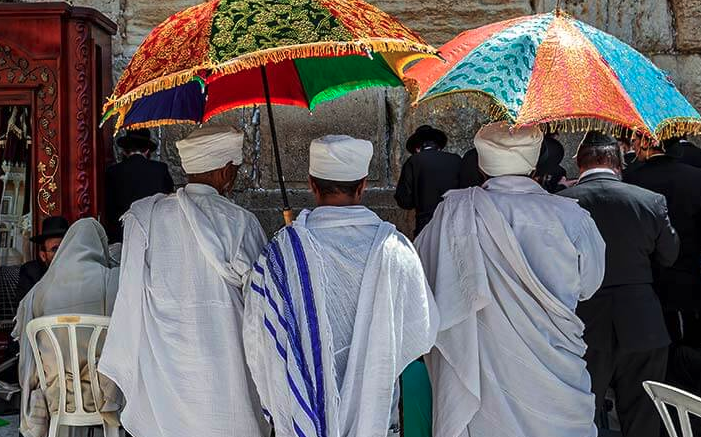To Jews in Ethiopia, Jerusalem is a mythical land of paradise. In Ethiopia they even have a song they sing to the migrating storks. In it they ask—“Oh stork, how is Jerusalem, our land?”
When anything went wrong in Ethiopia—anything from the curse of a witchdoctor to a strange illness or natural disaster, it was always the fault of the Jews. In the 1980’s and 90’s, the Israeli government reacted to the plight of Ethiopian Jews, so planes were chartered, and complex and even dangerous military operations were executed to airlift tens of thousands of Jews from Africa.
Finally arriving in Israel to be reunited with family members that had gone before is of course an anticipation of coming into heaven itself. But as in some cases, upon landing, the newly-arrived were handed gas masks and instructed what to do when the sirens go off. This was the welcome to Ethiopian Jews in Israel during the Gulf War, when Israel was being fired upon by Iraq’s Saddam Hussein.
The war didn’t last, and the slow and tedious process of assimilation into Israeli culture began. When fantasizing about Jerusalem, none of them considered the vast cultural gaps between Ethiopian village life and modern Israeli life. No long-term cultural assimilation solutions were provided by the government. This would explain why the assimilation process for Ethiopians was a bit like hitting a brick wall and then sinking into quicksand.
Stereotypes were the most immediate hurdle, but overcoming those was only part of the struggle. Perhaps the most difficult challenge they would encounter was that of their family structure. In Israel, the men and women were equal legally and culturally and women worked jobs just like the men. When it came to learning the language and adjusting to the new culture, the women often fared better than the men. Work opportunities were the same for both men and women, and the wives who had previously been dependent on their husbands’ skills in agriculture or a local trade, could now bring home greater incomes.
Despite Israel being a land of immigrants, Israeli culture tends to be tribal and does not always quickly embrace newcomers. So, while the young generation had abandoned their Ethiopian roots, they still had ways to go before they would master Israeli culture. This state of limbo between cultures resulted in an identity crisis for many Ethiopians. The fathers had lost hope they could build and support a family, and the younger generation was losing hope they would ever feel like they belonged. This vulnerability made some susceptible to street life and substance abuse—and everything that comes with that scene.
Some of these devout Jews find this hope and the real reason that they’ve come to the Holy Land — and his name is Yeshua. Most of them had never heard much about Yeshua—except in bad generalities, of course. So, when they encounter the truth of His words, God’s power provokes drastic changes in their lives and provides the power to do what He asks to do, which is to testify of His power.
And so, the community starts changing for the Glory of God.

